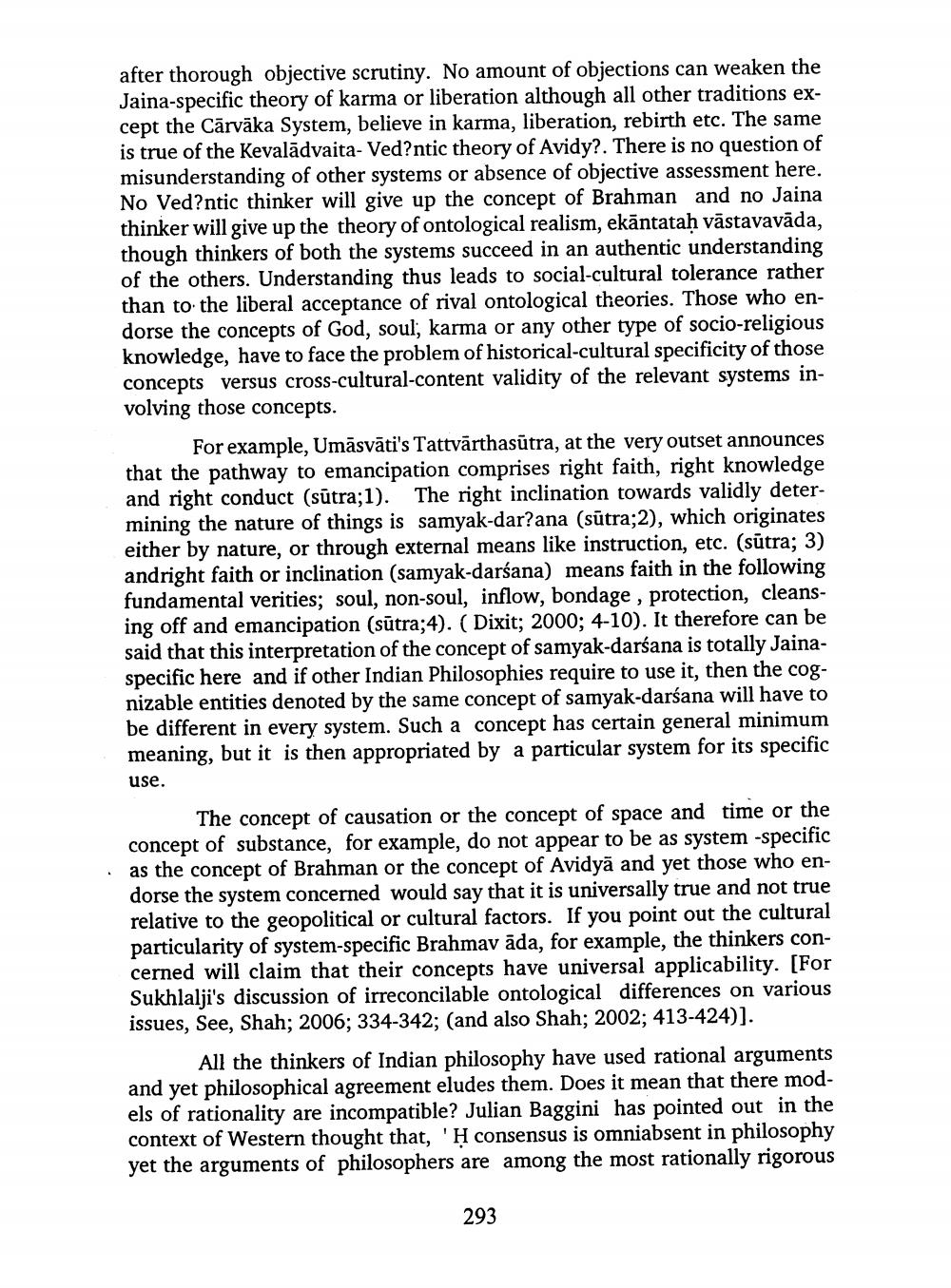________________
after thorough objective scrutiny. No amount of objections can weaken the Jaina-specific theory of karma or liberation although all other traditions except the Cārvāka System, believe in karma, liberation, rebirth etc. The same is true of the Kevalādvaita - Ved?ntic theory of Avidy?. There is no question of misunderstanding of other systems or absence of objective assessment here. No Ved?ntic thinker will give up the concept of Brahman and no Jaina thinker will give up the theory of ontological realism, ekāntatah vāstavavāda, though thinkers of both the systems succeed in an authentic understanding of the others. Understanding thus leads to social-cultural tolerance rather than to the liberal acceptance of rival ontological theories. Those who endorse the concepts of God, soul, karma or any other type of socio-religious knowledge, have to face the problem of historical-cultural specificity of those concepts versus cross-cultural-content validity of the relevant systems involving those concepts.
For example, Umāsvāti's Tattvārthasūtra, at the very outset announces that the pathway to emancipation comprises right faith, right knowledge and right conduct (sūtra;1). The right inclination towards validly determining the nature of things is samyak-dar?ana (sūtra;2), which originates either by nature, or through external means like instruction, etc. (sūtra; 3) andright faith or inclination (samyak-darśana) means faith in the following fundamental verities; soul, non-soul, inflow, bondage, protection, cleansing off and emancipation (sūtra;4). (Dixit; 2000; 4-10). It therefore can be said that this interpretation of the concept of samyak-darśana is totally Jainaspecific here and if other Indian Philosophies require to use it, then the cognizable entities denoted by the same concept of samyak-darśana will have to be different in every system. Such a concept has certain general minimum meaning, but it is then appropriated by a particular system for its specific use.
The concept of causation or the concept of space and time or the concept of substance, for example, do not appear to be as system -specific as the concept of Brahman or the concept of Avidyā and yet those who endorse the system concerned would say that it is universally true and not true relative to the geopolitical or cultural factors. If you point out the cultural particularity of system-specific Brahmav āda, for example, the thinkers concerned will claim that their concepts have universal applicability. [For Sukhlalji's discussion of irreconcilable ontological differences on various issues, See, Shah; 2006; 334-342; (and also Shah; 2002; 413-424)].
All the thinkers of Indian philosophy have used rational arguments and yet philosophical agreement eludes them. Does it mean that there models of rationality are incompatible? Julian Baggini has pointed out in the context of Western thought that, 'H consensus is omniabsent in philosophy yet the arguments of philosophers are among the most rationally rigorous
293




